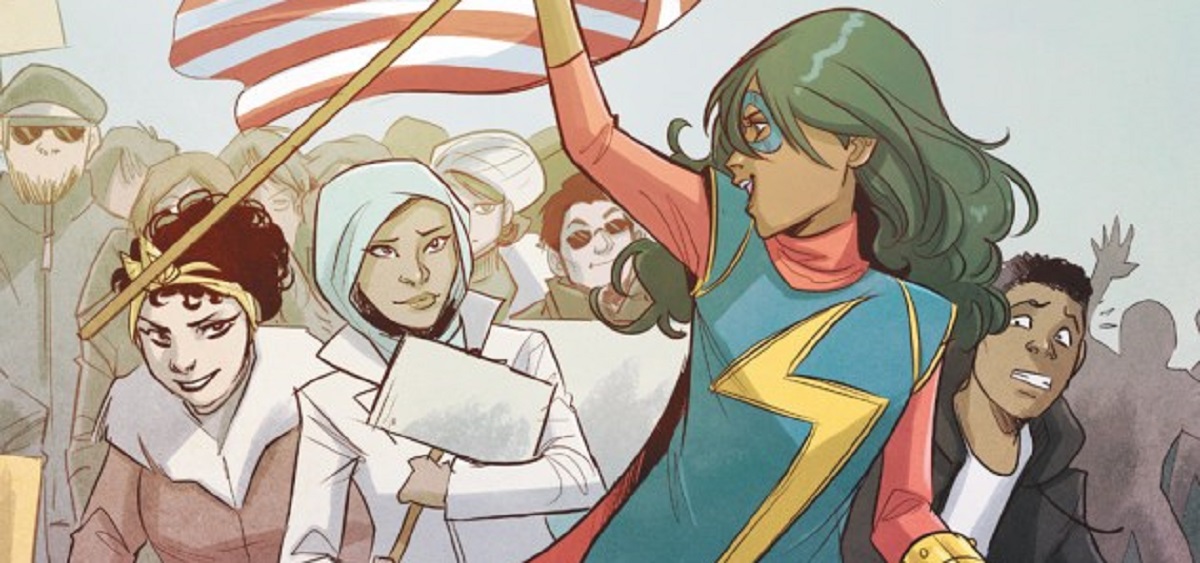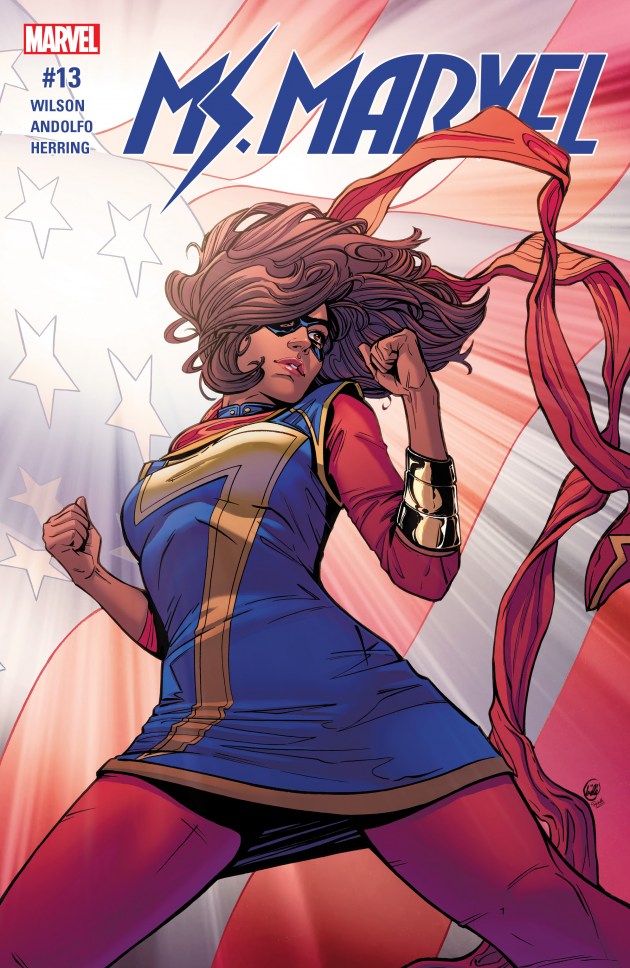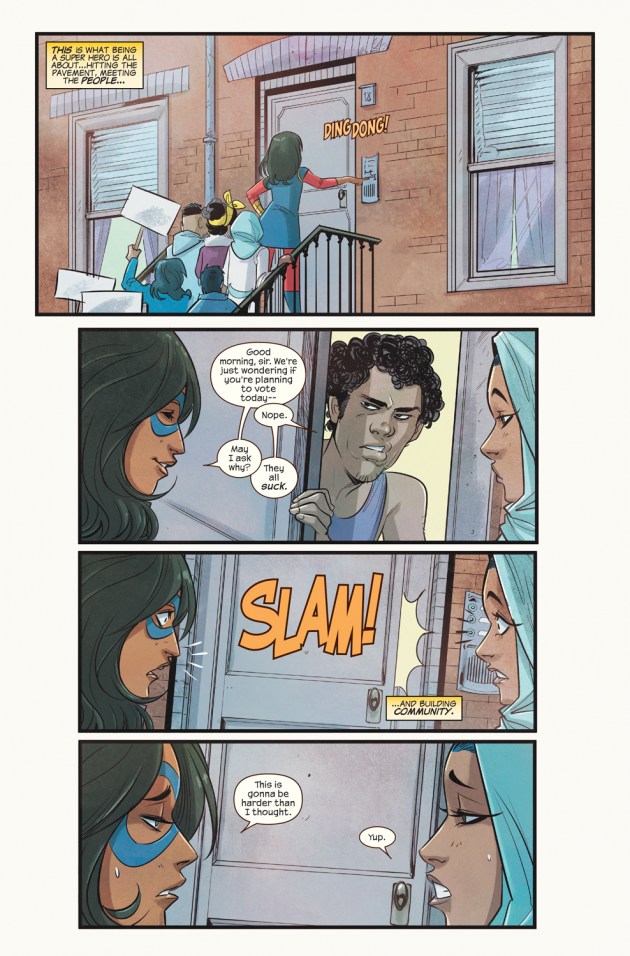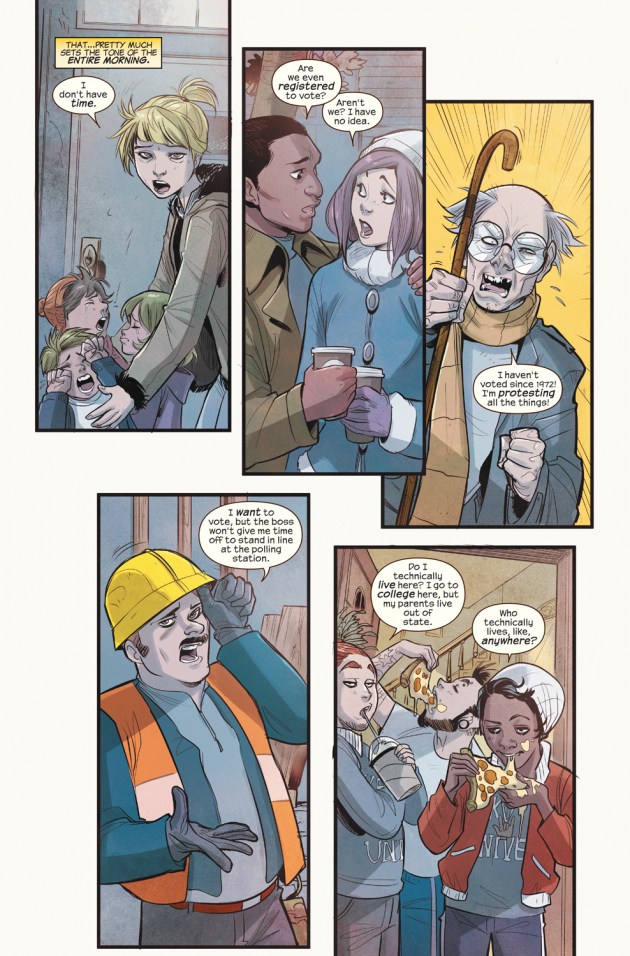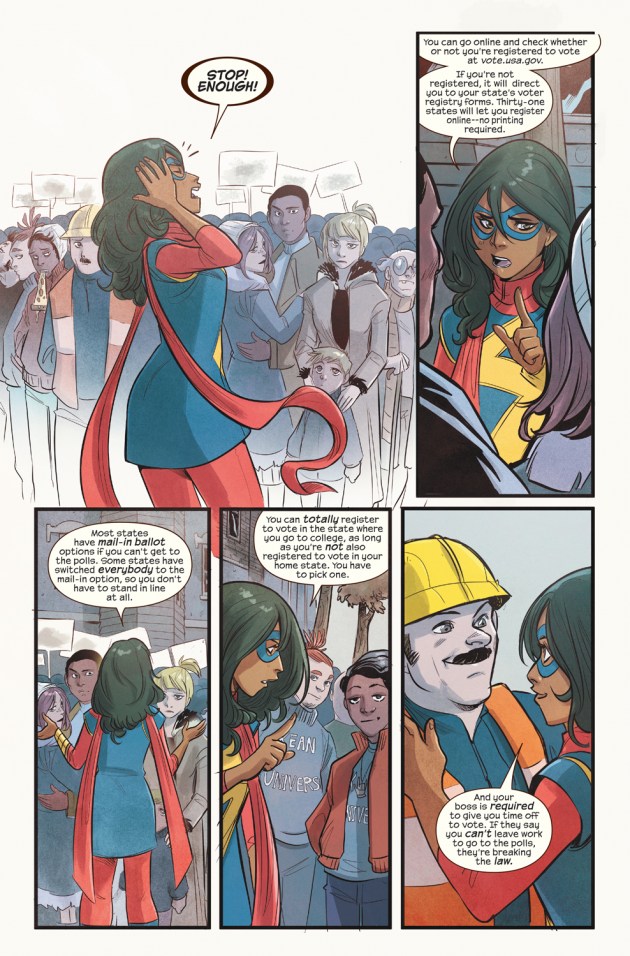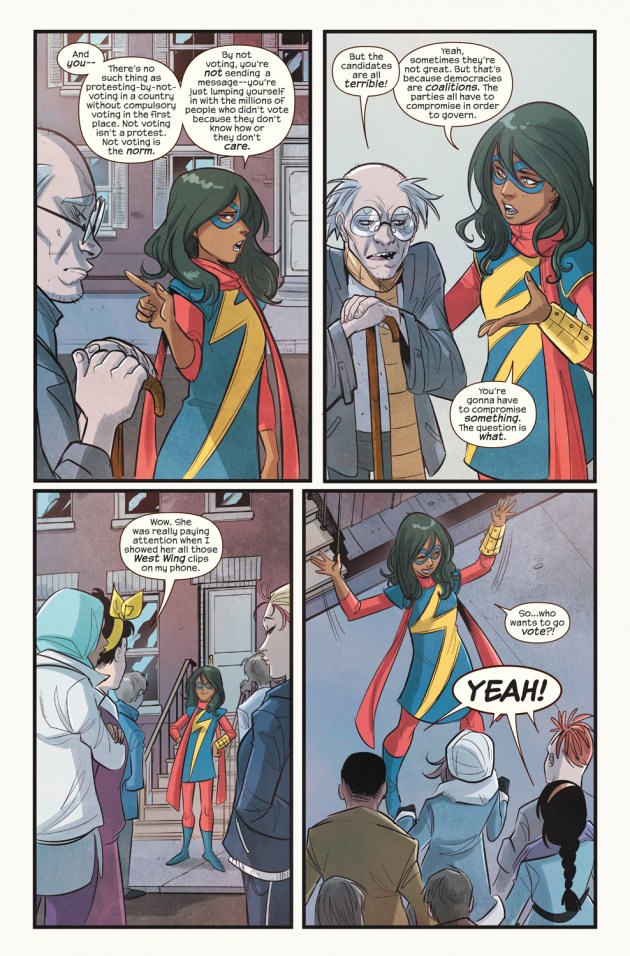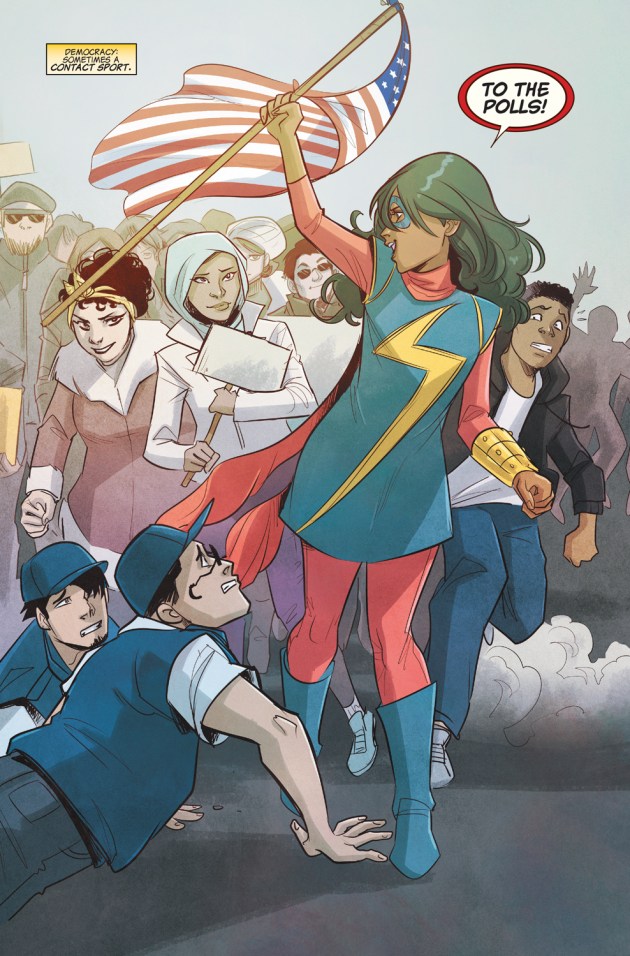 Ms Marvel #13
Ms Marvel #13
Writer: G. Willow Wilson
Artist: Mirka Andolfo
Colorist: Ian Herring
Letterer: Joe Caramagna
It’s hard to believe that Kamala Khan’s story is just three years old. Under the steady hand of writer G. Willow Wilson and a number of excellent artists, most notably Adrian Alphona, Kamala’s character has already made an indelible impact on the Marvel universe and pop culture at large. Her success has allowed diverse characters including Moon Girl and Miles Morales to play a bigger role at the comics publisher. However, Kamala is arguably the most notable among all the heroes Marvel has introduced over the last five years because her stories are unique in the way they blend her Pakistani heritage and life as an immigrant with a mix of topical social issues from gentrification to defining what it means to be a millenial. That thematic blending continues this week as Ms. Marvel continues to deal with the fallout of her Civil War II crossover while tackling the rash of civil disengagement in American politics. While certainly informative and well intentioned, Ms Marvel #13 lands with mixed results.
During Civil War II, Kamala was tasked with monitoring a group of young upstarts in Jersey City tasked with executing Captain Marvel’s predictive policing program. While Kamala initially supported her idol’s endeavor, a series of events caused her to see the flaws in a system based upon what could happen rather than what did, ultimately leading her to stand up to Captain Marvel– but not before her best friend Bruno was seriously injured. While Bruno did ultimately recover from his wounds, he decided to leave Kamala and Jersey City behind. This has left Kamala in a dark place over the last few issues of the series, as she’s been cut off from her closest friend and the superhero she idolized for years before donning her own costume. We see Kamala continuing to mourn at the start of this issue as she sits in her high school English class, her gaze lingering over Bruno’s empty desk. However, this plot thread is quickly forgotten when Kamala’s young brother-in-law Gabriel Hillman suddenly ends up sitting in that desk thanks to a gerrymandering scheme that acts as the catalyst for the main plot in this issue. The narrative shift here feels a little sudden given that Kamala’s relationship with Bruno isn’t brought up again throughout the rest of the issue except for a brief moment where Kamala works with Bruno’s ex-girlfriend Mike. It feels like the only reason why this scene was included at all was to give this issue a feeling of continuity– something I feel undermines the nature of this particular story.
In the end, while Ms Marvel #13 is a topical allegory about the 2016 presidential election, it ultimately works best as an evergreen story about the compromises of democracy and the importance of civic engagement at all levels of government. The main conflict focuses on a sudden redistricting of Jersey City to give Chuck the “HYDRA hipster” we saw in an earlier 2016 Ms. Marvel arc, an edge in the mayoral election. While Kamala initially suggests punching her way out of the problem, Mike suggests that she use her status as Ms. Marvel to get people to turn out and vote instead. When she initially tries to push people to vote, many provide reasons why they cannot. They range from not having time to being college students living in dorms who aren’t certain where they are technically allowed to vote. These are all very real reasons why many people, including myself, have either not turned out to vote or have found themselves confused by the process. The genius of Ms. Marvel #13 is the way that G. Willow Wilson uses Kamala’s character to tackle these excuses one by one. Kamala tells people they can go to vote.usa.gov to check their voter registration status and learn how to register. She tells them bosses are required to give workers time off to vote. She lets the college kids know that they can vote in the area where they go to school rather than in their parents’ home state as long as they aren’t registered in two places at once. Indeed, this does all make the issue feel a little bit like a long PSA, but it’s an important one and makes Ms. Marvel #13 a book I will gladly give people in the election years to come. I just wish the opening didn’t date the book to a certain extent.
More frustratingly, I’m pained that Ms. Marvel #13 hits store shelves today, November 30th, 2016. It has been three weeks since the American presidential election this issue is ostensibly rallying voters for. While this is no fault of the book’s creative team, it certainly is a massive scheduling gaffe that makes the issue feel less topical than it should have. Moreover, the results of the election have cast a cloud over the hopeful message of this story and ultimately, the series as a whole. It will be interesting to see how contemporary national politics are addressed by Ms. Marvel moving forward as Trump considers establishing a Muslim registry in America.
From a purely artistic standpoint, Mirka Andolfo does a great job with this issue. In my mind, the most important thing about a Ms. Marvel comic’s visuals is that they feel vibrant. Indeed, Andolfo and colorist Ian Herring do just that throughout the comic. Kamala and her high school compatriots are rendered with wide eyes and smooth faces that emphasize their youthfulness and capacity for intense emotion. When we see Mike’s face rendered in a scream as Ms. Marvel jumps through her window with a grin on her face, we vividly feel Mike’s terror and Kamala’s brief moment of amusement at the reaction. We feel the same resolve she does as she leads a mass of people to the polls in a composition reminiscent of the famous Eugène Delacroix painting Liberty Leading the People.
Ultimately, my feelings about Ms. Marvel #13 are mixed. The opening scenes and Marvel’s decision to print the title after this year’s election make the book feel incredibly dated and perhaps even naïve, given the world we now live in. However, I also think it is an undoubtedly strong comic that everyone in America should read. It emphasizes the importance of every individual person’s vote– something that many feel has been devalued over the years. Moreover, it provides actionable instructions on how to get involved and provides answers to confusing questions about the electoral process. Thus, ultimately, I believe that in the future, Ms. Marvel #13 will prove to be an inspirational read. That’s high praise for a single issue in any comics series.


